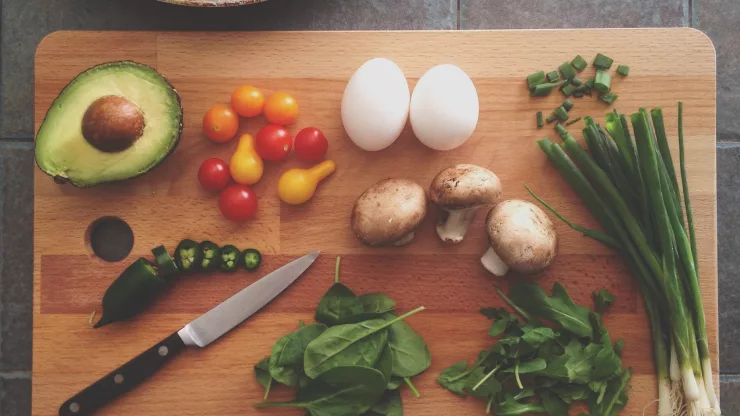We all know that processed foods get a bad rap, but are they really all that bad? In this article, we’ll break down the pros and cons of processed foods, discuss the health implications of consuming them, explore the different types of processed foods, and talk about how to make smart choices when it comes to incorporating them into your diet.
Jump to Section
Introduction
Processed foods are a staple in many households, but they’ve gained a reputation for being unhealthy and contributing to the rise in chronic diseases such as obesity, diabetes, and heart disease. However, not all processed foods are created equal, and some can actually be a part of a healthy diet when consumed in moderation.
What are processed foods?
Processed foods are any foods that have been altered in some way from their natural state.
This can include simple alterations such as freezing or canning, or more complex processes such as adding preservatives, colorings, and other additives.
Common examples of processed foods include canned vegetables, breakfast cereals, snack foods, and frozen dinners.
The Pros and Cons of Processed Foods
The Benefits of Processed Foods
One of the main benefits of processed foods is convenience.
They’re often quick and easy to prepare, making them a popular choice for busy people or those who don’t have a lot of time to cook.
Additionally, many processed foods are fortified with vitamins and minerals, making them a good source of nutrients for people who may not be getting enough from whole foods.
The Drawbacks of Processed Foods
On the other hand, processed foods can be high in sugar, salt, and unhealthy fats, which can contribute to weight gain and other health problems. Additionally, many processed foods contain additives and preservatives that have been linked to adverse health effects.
The Effect of Processed Foods on Our Health
Research has shown that a diet high in processed foods can increase the risk of chronic diseases such as obesity, diabetes, and heart disease. This is because these foods tend to be high in calories, sugar, and unhealthy fats, while being low in nutrients like fiber and vitamins.
Types of Processed Foods
Minimally Processed Foods
Minimally processed foods are foods that have been altered in some way, but still retain most of their original nutritional value. Examples of minimally processed foods include washed and cut vegetables, roasted nuts, and bagged salads.
Highly Processed Foods
Highly processed foods, on the other hand, are foods that have been heavily modified and often contain a long list of additives and preservatives. Examples of highly processed foods include candy, chips, soda, and frozen dinners.
The Impact of Processed Foods on Society
The Economic Impact
Processed foods are often cheaper than fresh, whole foods, making them a popular option for people on a tight budget. However, this can also contribute to food insecurity and malnutrition in low-income communities.
The Environmental Impact
The production and transportation of processed foods can have a significant impact on the environment, contributing to greenhouse gas emissions, water pollution, and deforestation.
The Social Impact
Processed foods can also have a social impact, as they’re often marketed to children and can contribute to the rise in childhood obesity and other health problems.
The Truth About Processed Foods
The Myths and Misconceptions
There are many myths and misconceptions surrounding processed foods, including the idea that they’re all unhealthy and should be avoided at all costs. However, as we’ve seen, not all processed foods are created equal.
The Facts and Evidence
Research has shown that a diet high in heavily processed foods can increase the risk of chronic diseases, while a diet rich in whole, minimally processed foods can have significant health benefits.
However, this doesn’t mean that all processed foods should be avoided entirely.
Rather, it’s important to make smart choices when it comes to incorporating them into your diet.
| Relative Table | |
|---|---|
| Processed Foods | Whole Foods |
| High in sugar, salt, and unhealthy fats | Low in sugar, salt, and unhealthy fats |
| Low in nutrients like fiber and vitamins | High in nutrients like fiber and vitamins |
| Often contain additives and preservatives | Free of additives and preservatives |
Making Smart Choices with Processed Foods
Reading Food Labels
When choosing processed foods, it’s important to read food labels carefully and pay attention to the ingredients list. Look for foods that are low in sugar, salt, and unhealthy fats, and avoid foods that contain a long list of additives and preservatives.
Choosing Healthier Options
Opt for minimally processed foods whenever possible, such as fresh fruits and vegetables, whole grains, and lean proteins. When choosing processed foods, look for healthier options such as unsweetened applesauce, canned beans, and frozen vegetables without added sauces.
Cooking and Preparing Processed Foods
When cooking with processed foods, try to choose cooking methods that preserve their nutritional value, such as steaming, roasting, or grilling. Avoid frying or deep frying, which can add unnecessary calories and unhealthy fats.
Incorporating Whole Foods into Your Diet
Finally, it’s important to incorporate whole foods into your diet as much as possible. This can help ensure that you’re getting all of the nutrients your body needs to stay healthy, and can help reduce your risk of chronic diseases.
Conclusion
Processed foods can be a convenient and affordable option, but they’re not without their drawbacks. By making smart choices when it comes to incorporating processed foods into your diet, you can help ensure that you’re getting all of the nutrients your body needs while minimizing your risk of chronic diseases.
A Balanced Approach to Eating
Ultimately, the key to a healthy diet is balance. Incorporate a variety of whole, minimally processed, and processed foods into your diet, and make sure to pay attention to portion sizes and overall calorie intake.
FAQ
Are all processed foods unhealthy?
No, not all processed foods are unhealthy. Some, such as minimally processed foods like roasted nuts and bagged salads, can be a healthy part of a balanced diet.
What should I look for when reading food labels?
When reading food labels, look for foods that are low in sugar, salt, and unhealthy fats, and avoid foods that contain a long list of additives and preservatives.
How can I incorporate more whole foods into my diet?
Incorporating more whole foods into your diet can be as simple as adding more fruits and vegetables to your meals, choosing whole grains instead of refined grains, and opting for lean proteins such as chicken, fish, and beans.

With a deep passion for personal development, Ben has dedicated his career to inspiring and guiding others on their journey towards self-improvement.
His love for learning and sharing knowledge about personal growth strategies, mindfulness, and goal-setting principles has led him to create My Virtual Life Coach.
Contact Ben at [email protected] for assistance.




